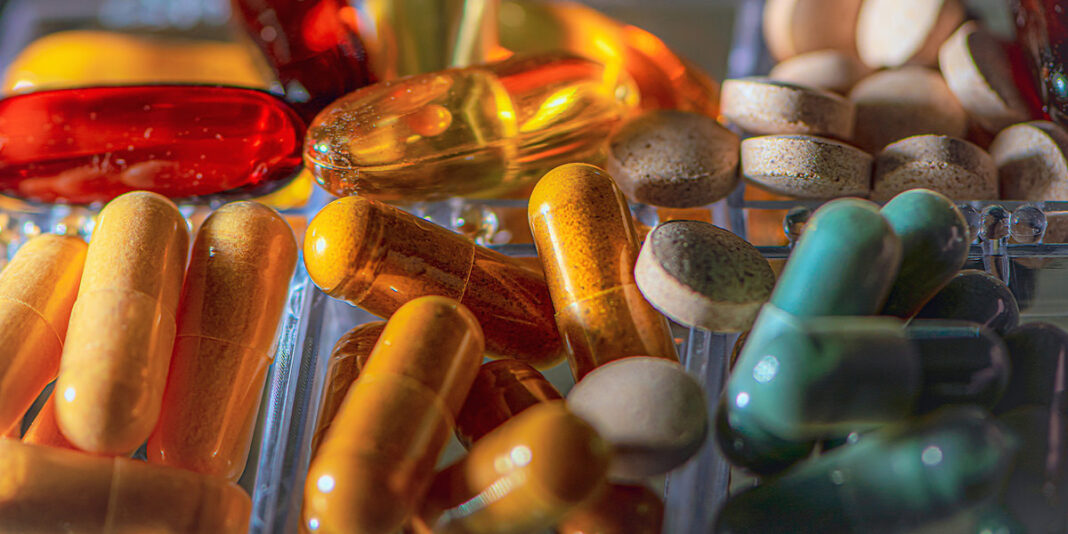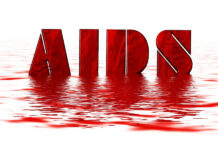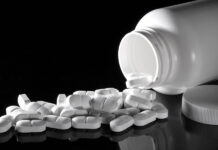June 6, 2024 marked the date when the U.S. Centers For Disease Control (CDC) published their guidelines on the use of doxycycline post-exposure prophylaxis (doxy-PEP) for those considered to be at high risk of bacterial sexually transmitted infections (STIs). Studies have found that doxy-PEP can reduce the incidence of syphilis, chlamydia and in some cases gonorrhea among cisgender men who have sex with men (MSM) and transgender women who have sex with men (those assigned male at birth). There does not yet seem to be a consistent acronym structure for doxy-PEP, with variations in existence including doxy PEP, doxy-PEP and doxyPEP.
Doxycycline is sometimes abbreviated as “doxy” and is an antibiotic that belongs to the tetracycline antibiotics group, which has been proven to be effective against a wide range of bacterial infections. It has been prescribed to treat various infections caused by bacteria, including bacterial pneumonia, sinusitis, acne, Lyme disease, cholera, typhus and malaria, but had not been commonly used to treat sexually transmitted infections (STIs) up to this point. Doxycycline was patented in 1957 and came into commercial use in 1967.
The CDC recommendations are based on 3 randomised clinical trials showing that a 200mg dose of doxy-PEP taken within 72 hours of sex can reduce the risk of syphilis and chlamydia by more than 70% and reduce the risk of gonorrhea by up to 50% in men who have sex with men. Dosage should not exceed 200mg in a 24 hours hour period, but can continue to be taken for multiple days if required. There isn’t enough scientific evidence to make a recommendation about doxy-PEP for cisgender women, cisgender heterosexual men, transgender men and other queer and non-binary people at this stage, as stated by the CDC in their report.
The use of doxy-PEP is similar to the use of PEP that was introduced in 2005 as a way to prevent the transmission of HIV when taken within 72 hours of a risky sexual encounter, which involves taking a combination of 3 drugs. In 2012, PrEP was first introduced in the United States that involves a combination of 2 drugs, with the medication needing to be taken before possible exposure to HIV. The recommendations also state that when doxy-PEP is offered and part of a comprehensive sexual health approach, those prescribed doxy-PEP should undergo bacterial STI testing in 3 to 6 month intervals thereafter.
Some of the side effects of taking doxy-PEP include gastrointestinal intolerance (diarrhoea, nausea, vomiting and abdominal pain) and photosensitivity (sunburn), with no serious side effects attributed to doxycycline. Doxy-PEP does not protect against HIV transmission, so PrEP is still an important factor to assist those who are wanting to prevent the transmission of HIV and PrEP does not protect against the transmission of other STIs, apart from HIV. The studies also found that the risk of bacteria becoming resistant to medications was low, although there have been no long-term studies on the intermittent use of doxycycline, so further studies will need to explore this, along with ensuring there is no impact to gut health as well.
Doxy-PEP Tips:
- If you fuck raw within 24 hours of taking doxy-PEP, take another 2 pills (100mg x 2) or 200mg 24 hours after your last dose.
- The sooner you take doxy-PEP after sex the better and within 24 hours is ideal.
- Do not take more than 200mg in a 24 hour period.
- To avoid possible side effects such as nausea and headaches, take doxy-PEP with food and water.
- Stay upright for at least 30 minutes after taking doxy-PEP to avoid throat irritation.
- Avoid dairy products, calcium, antacids, or multivitamins 2 hours either side of taking doxy-PEP.
- Wearing sunscreen or avoiding extended time in the sun will help avoid skin irritation.
- There can be serious risks with some oral acne medication, so doxy-PEP should not be combined.
Doxy-PEP can be beneficial for bug chasers, because majority of bug chasers are seeking HIV exclusively, so for those who are in pursuit of becoming infected with HIV and are not wanting to collect other bugs along the way, doxy-PEP can be a tool that’s useful with helping to avoid contracting chlamydia, syphilis and in some cases gonorrhea, whilst still leaving the body unprotected against contracting HIV. This also means if you do have raw sex with someone who has chlamydia, syphilis or gonorrhea, you will receive a fairly decent level of protection against these bacterial infections, but they could still infect you with HIV if they are HIV-positive and detectable.
As doxy-PEP is relatively new, some countries are yet to approve the use of doxy-PEP and if the country where you reside does offer doxy-PEP, you will need a prescription to obtain the medication, in the same way you need a prescription to obtain PrEP. The medical guidelines refer to those who have had chlamydia, syphilis or gonorrhea within the past 12 months or someone who is at risk of contracting these STIs, so some doctors may not be willing to prescribe the medication, so if this is the case, then you might find more success by visiting a sexual health clinic if one is available near you.
If you want to protect yourself against HIV transmission, then PEP and PrEP are the medications you need to take. If you want to protect yourself against chlamydia, syphilis or gonorrhea, then doxy-PEP is the medication you need to take. If you want to protect yourself from chlamydia, syphilis, gonorrhea and HIV, then you will need to take both PEP or PrEP and doxy-PEP. If you want to collect all four bugs, then you might want to avoid taking any of these medications so your body is left unprotected and available to receive these bugs. As with all information published at this website, it’s important for you to seek professional healthcare advice to ensure what you do is right for you.
Further Reading:
- CDC Clinical Guidelines on the Use of Doxycycline Postexposure Prophylaxis for Bacterial Sexually Transmitted Infection Prevention
- Preventing STIs with Doxy PEP
Featured Photo: Image by Ri Butov from Pixabay.
Article ID: CC079
Version Control: 1.0 – January 8, 2025: Original article published.







